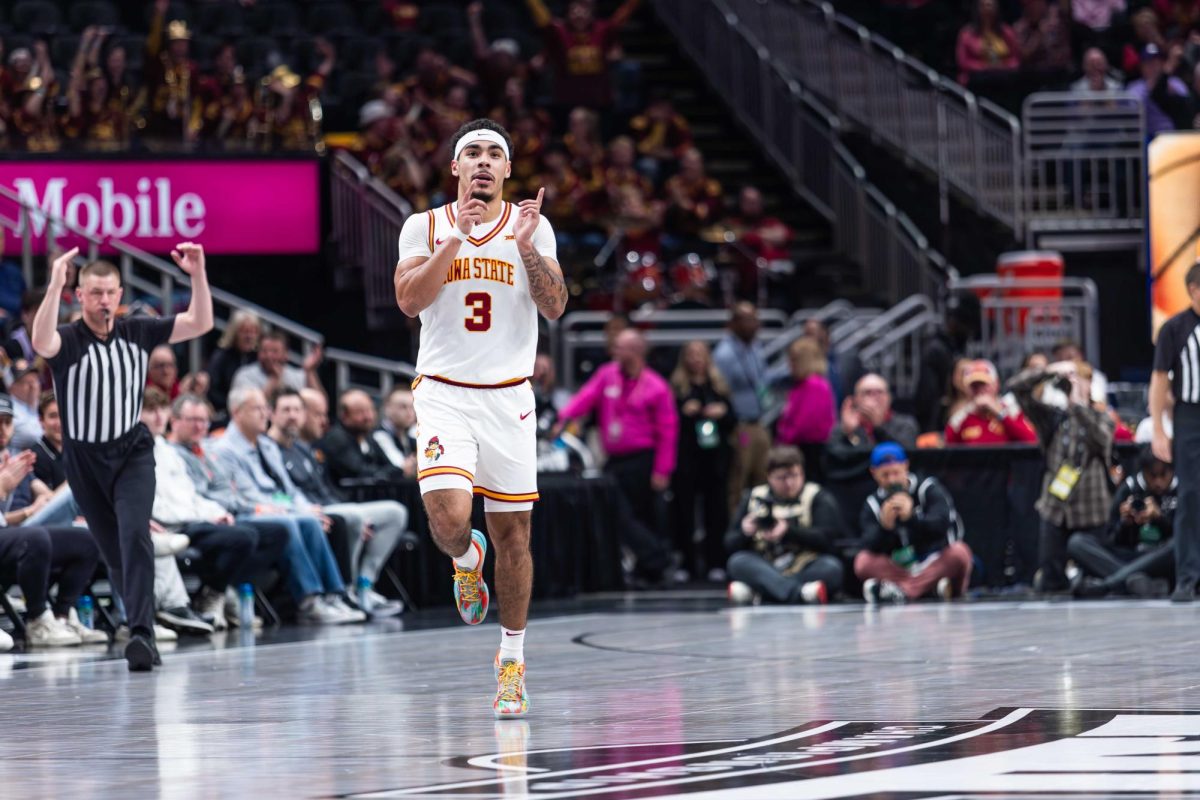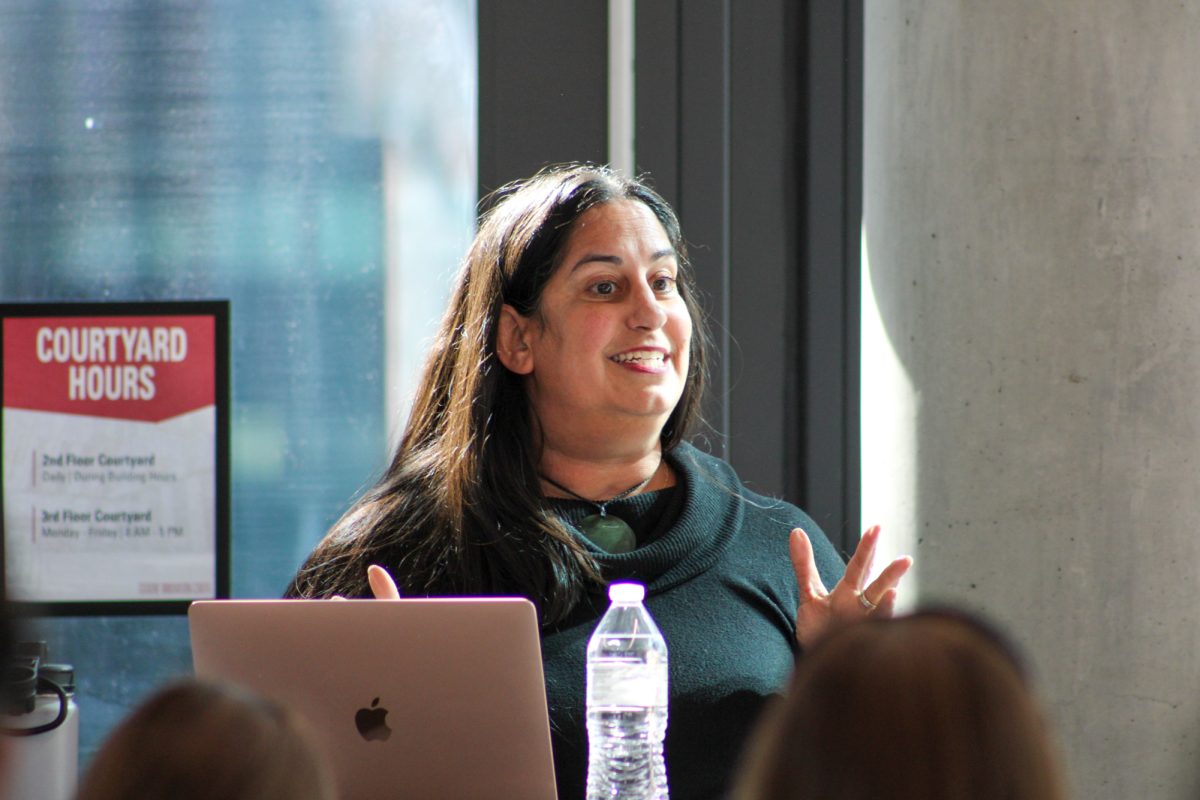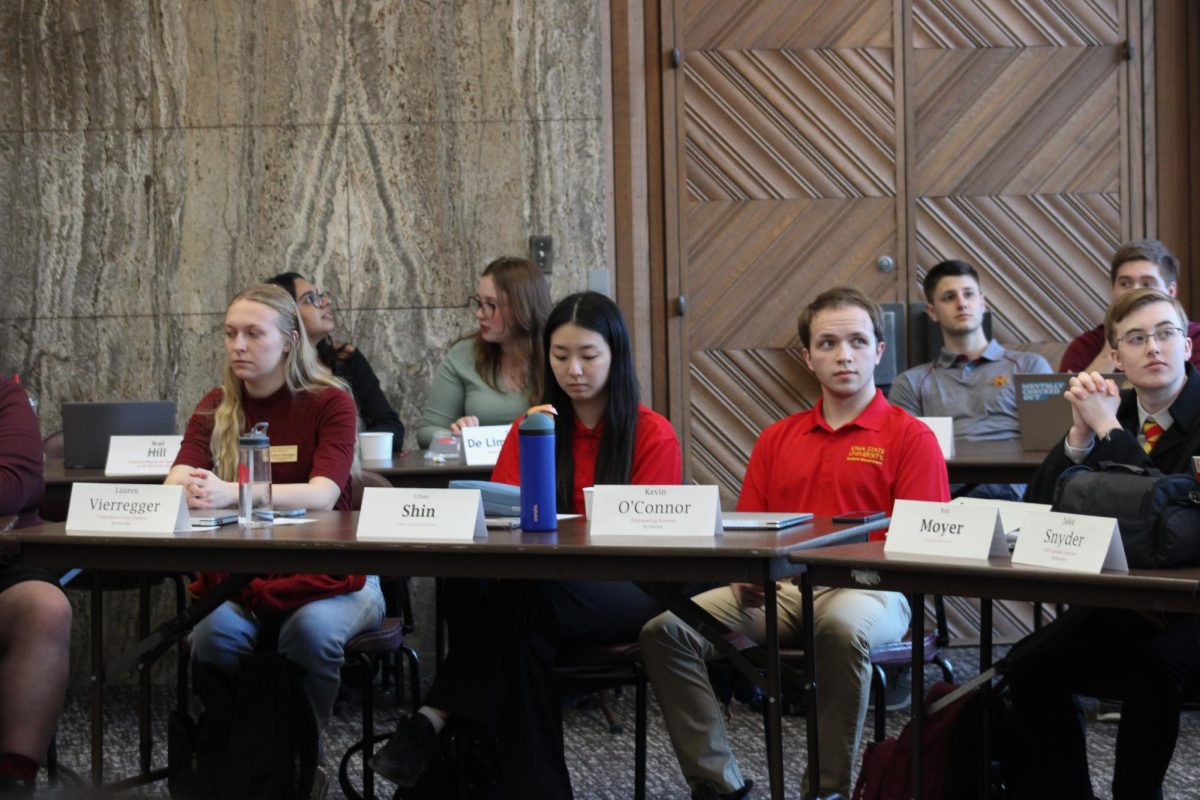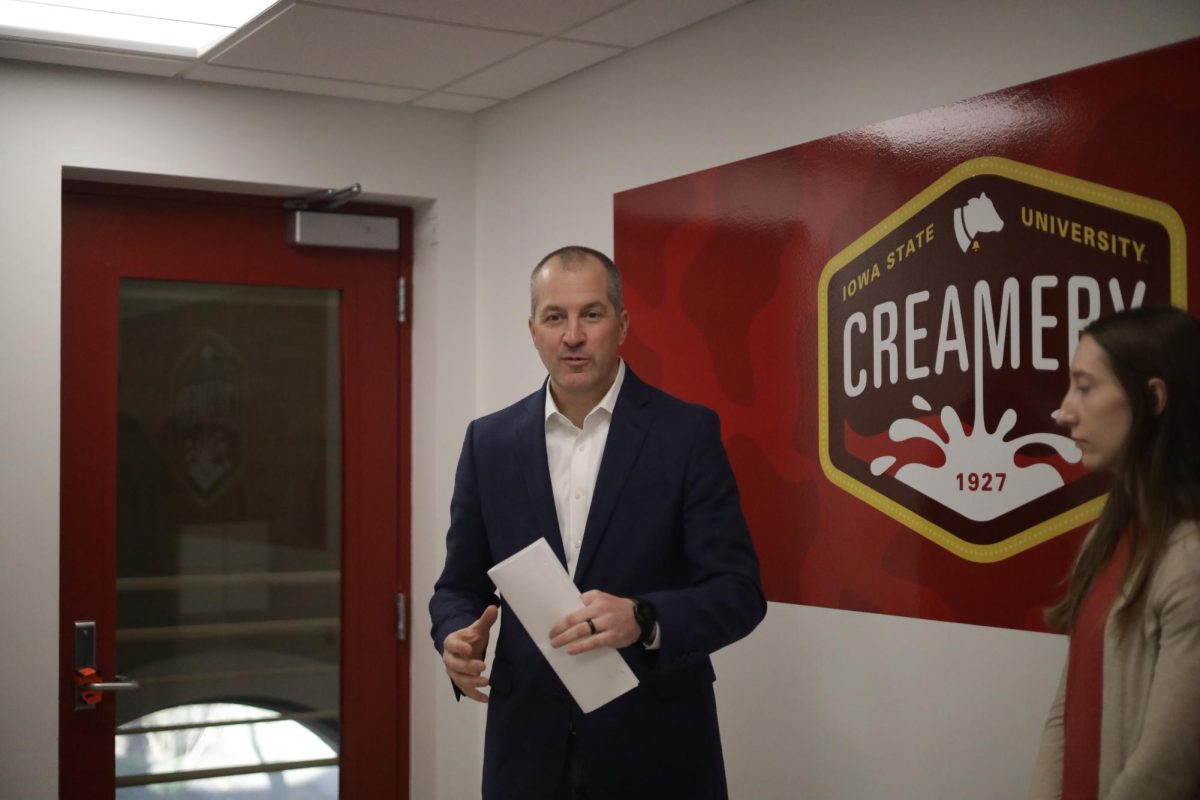Students participate in Iowa caucuses
May 6, 1996
With the face-off between Bill Clinton and Bob Dole lurking in November, the chilly Iowa caucuses of last February seem distant and somewhat inconsequential.
But the caucuses are that one time every four years when the nation tries to take its political pulse by testing people from places like Des Moines, Cedar Rapids, Dubuque, Council Bluffs, Ottumwa, Huxley, Adel, Audubon, Red Oak, Marshalltown and Ames.
And many Iowa State students had a chance to be involved in national politics, from heading up campaigns on campus to presiding over caucuses and serving as delegates in the county precincts.
The following portrays some of those students involvement on the night of Feb. 12, 1996:
Sporting a tie emblazoned with U.S. flags, Dan Mangan led his precinct caucus with energy Monday night.
“It’s time to get rocking,” the Government of the Student Body president said.
Mangan said he got involved with the caucuses because he was “fascinated with the entire process of democratic expression.”
“It’s just exhilarating.”
Mangan, a Phil Gramm supporter, was one of many students who participated in the 17 caucuses held on or near campus on Feb. 12.
The caucus for precinct Ames 3-3, held in Ross Hall, had a turn out of about 70 Republicans—about 50 were students. Mangan said he promoted the caucuses extensively.
“I talked to every single person I knew, told them to come on out,” he said.
J.C. North, a non-student caucus attender remembers that four years ago only seven people in the precinct turned out for the caucus. “The student organization has done a good job—a great job,” he said.
Bill Konrady, 22, a senior in mechanical engineering, who lives with Mangan, said he was influenced by his house mate. He said he had never been to a caucus before. “I just wanted to get involved, put in my vote and see what it’s all about.” Konrady’s vote was for Gramm, who came in a close second to Bob Dole in Ames 3-3.
Nate Baldwin, a senior in chemical engineering, also came to Ross Hall for his first caucus. “I wanted to make sure my candidate is the one Iowa selects. Baldwin spoke up for his candidate, Bob Dole, during the caucus. “We need to send a message to the rest of the country and especially New Hampshire to say Bob Dole’s our guy,” Baldwin said.
Baldwin said he was surprised by the number of Republican students who showed up.
“I thought I was in the minority,” he said. “I thought most wouldn’t care, if anything they’d be Democrat.”
John Hamilton, a sophomore in marketing, served as secretary for his first caucus. He was also the head of the Gramm campaign on campus. Hamilton was one of six nominees for the precinct’s two county delegates. He said he wanted to serve because “it would be really great if we could get some younger students involved to show the nation.”
Alice Tyrrell, a sophomore in speech education, attended the caucus for the Ames 4-5 precinct, held in Pearson Hall, as an assignment for her Speech 303 semantics class. She said all of the 20 caucus-goers were students.
Tyrrell said she voted for Alan Keyes, although she didn’t know much about him, because she heard he was a Christian.
Tyrrell said she would have like to have been more informed before attending her first caucus, but she said “I think it’s important. I think more people should go out for the caucuses to learn about the government process and their role.”
Wearing a red-plaid flannel shirt in honor of Lamar Alexander, Matthew Incera, a senior in political science and history, was also attending his first caucus at Pearson Hall. He will be representing the precinct on the county level. He said this was one of his first steps in a future in politics. “I love this,” he said.
“It’s your democratic duty to participate in things like this, because it’s your democratic freedom to do it,” Incera said.
Student turn-out for the Democratic caucuses didn’t seem to be quite as strong as Republicans.
At the Democratic caucus for Ames precincts 2-2 and 4-5, there were 49 in attendance, and 22 of those were students.
Jennifer Dreibelbis, a senior in journalism and political science was the chair for the 4-5 precinct. She said the turn-out “was a lot higher than we expected, but because it was in a dorm it was disappointing that more students didn’t show up because they just had to walk down the stairs.”
Heather Shaffer, a junior in microbiology, was attending the caucus and doing her computer science homework. She said she came to her first caucus to “show my support for the Democratic party, because I don’t agree with what the Republicans have been doing.”
She said she was surprised at the low turn-out of students, “because I think there are some issues that students should really be concerned about.”
Jeff Hankens, a sophomore in computer science, said he was “unimpressed by the turn-out. I was hoping to see more students or at least more Democrats.”






